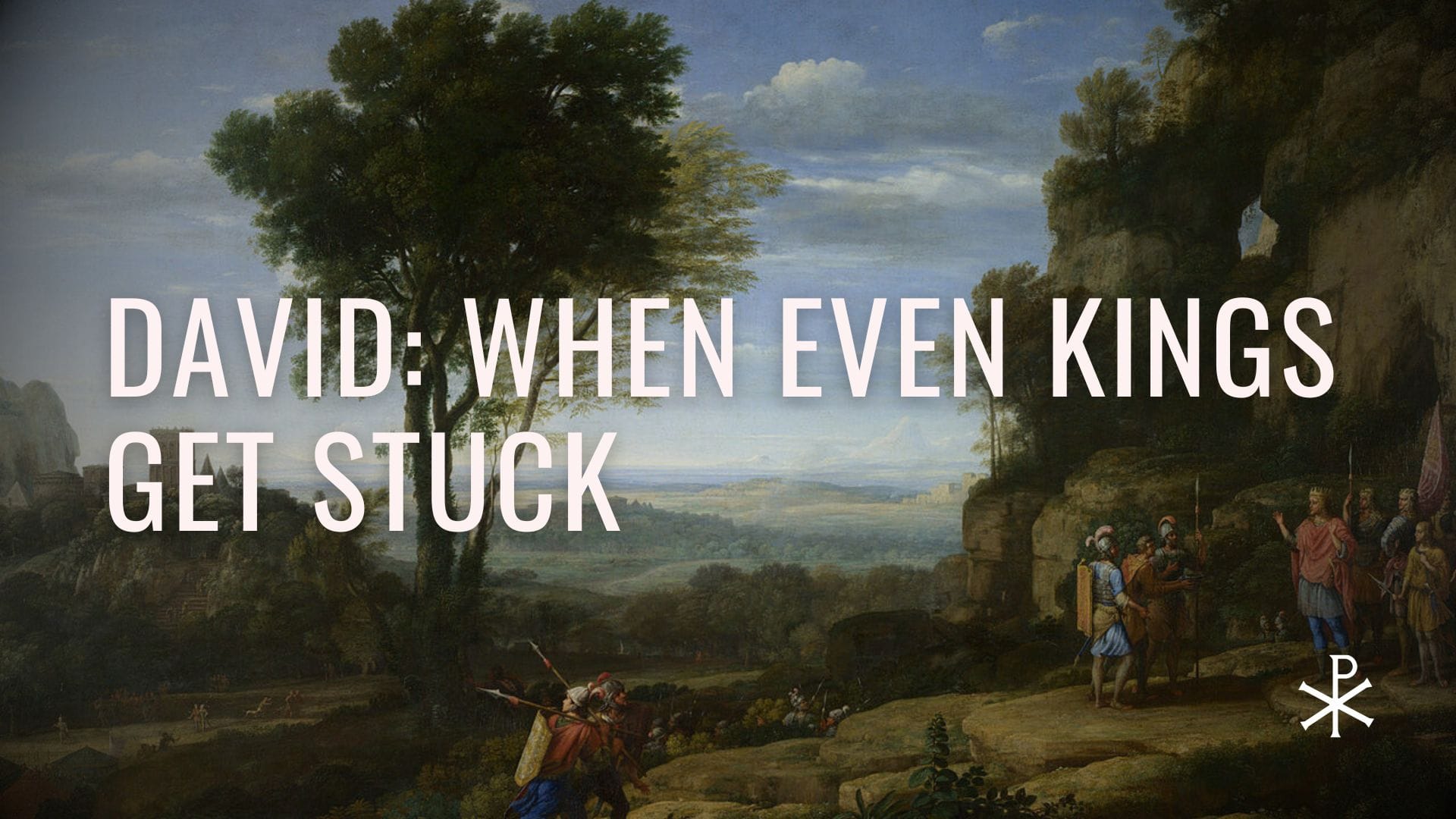Redeemed Failures, Day 27: David — When Even Kings Get Stuck
David's story shows how honest prayer with God provides a way forward whether you're stuck by difficult circumstances or trapped by past mistakes.

2 Samuel 11–12; Psalm 142; Psalm 51
David's story spans an almost impossible range of human experience. He was the shepherd boy who felled Goliath, the poet who gave Israel its psalms, the king after God's own heart. He also became an adulterer and murderer who arranged the death of Bathsheba's husband (2 Sam. 11). Between those extremes lie countless moments that look more like our own: hiding in caves, feeling abandoned, wondering if God had forgotten his promises.
What's remarkable isn't that David experienced both spectacular failure and ordinary desperation. What's remarkable is that he found the same way forward in both situations: radical honesty with God about exactly where he was.
When Circumstances Trapped Him
Long before his moral collapse, David knew what it felt like to be cornered by forces beyond his control. Hunted by Saul, cut off from safety, and surrounded by a ragtag band of fellow outcasts, he hid in the cave of Adullam (1 Sam. 22:1–2). These weren't exactly ideal leadership conditions.
Psalm 142 preserves his prayer from that season, and it's refreshingly honest:
"Look and see, there is no one at my right hand; no one is concerned for me. I have no refuge; no one cares for my life" (v. 4).
David didn't dress up his desperation in spiritual language. He told God exactly how trapped and forgotten he felt.
When Sin Trapped Him
Years later, as an established king, David faced a different kind of being stuck: the suffocating weight of guilt after his sins with Bathsheba came to light. When Nathan the prophet confronted him, David could have deflected, rationalized, or reminded everyone of his royal prerogatives. Instead, he responded with the same stunning honesty he'd shown in the cave: "I have sinned against the Lord" (2 Sam. 12:13).
Psalm 51 reveals the depth of that confession: "Against you, you only, have I sinned and done what is evil in your sight"(v. 4). Whether trapped by circumstances or trapped by his own choices, David discovered that the first step toward freedom was telling God the unvarnished truth about his situation.
The God Who Meets Us Where We Actually Are
In both the cave and the aftermath of his sins, David learned something profound about God's character. The Lord didn't require him to clean up his circumstances before crying out for help. God didn't demand that David minimize his guilt or package his confession in prettier terms. Instead, He met David exactly where he was—desperate in a cave, broken under the weight of sin—and provided what he needed.
David's sins carried severe consequences: family strife, personal grief, national turmoil. His time on the run involved real hunger, fear, and the exhausting uncertainty of life in hiding. Yet Scripture shows us a God who forgave the repentant king, sustained him through his wilderness years, and even promised that the Messiah would come through his line.
Psalm 142 ends with hope that feels hard-won: "Set me free from my prison, that I may praise your name. Then the righteous will gather about me because of your goodness to me" (v. 7). David's longing wasn't simply for relief, but for the chance to glorify God once more.
An Encouragement
Perhaps you recognize yourself somewhere in David's story. Maybe you're trapped by circumstances that feel completely beyond your control: financial pressures, health challenges, relational conflicts that seem to have no good resolution. Or perhaps you're wrestling with the aftermath of your own poor choices, wondering if you've moved beyond the reach of God's grace.
David's experience suggests that the starting point for finding freedom is the same regardless of how you got stuck: honest conversation with God about where you really are. Not where you think you should be, not where you wish you were, but where you actually find yourself today.
The man who fell hard and felt forgotten is the same man who eventually wrote: "The Lord is my shepherd; I shall not want" (Ps. 23:1). That shepherd is Christ Himself, the greater Son of David, who entered our darkness and bore our guilt so that neither shame nor circumstances would have the final word. In Him, caves don't last forever, forgiveness is real, and the stuck discover that they were never as alone as they thought.
Enjoy all 31 devotionals in the Redeemed Failures series here —stories of grace, second chances, and the God who still restores.
